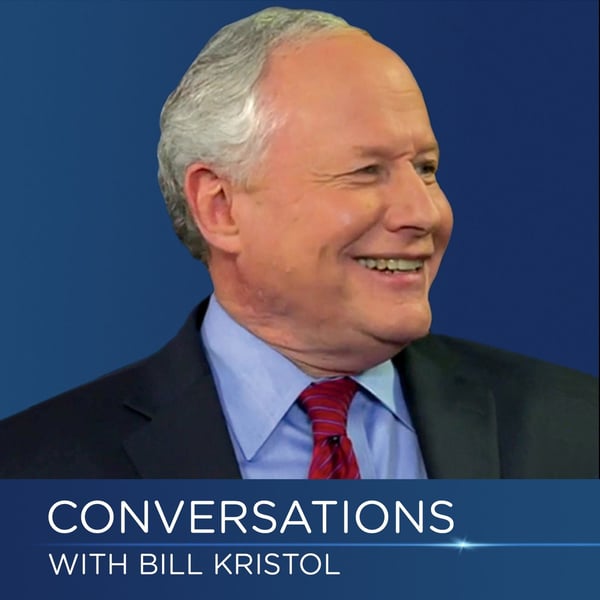Aaron Friedberg: On US-China Relations and the Threats We Face
Conversations with Bill Kristol
Conversations with Bill Kristol
4.7 • 1.7K Ratings
🗓️ 3 September 2021
⏱️ 101 minutes
🧾️ Download transcript
Summary
Transcript
Click on a timestamp to play from that location
| 0:00.0 | Hi, I'm Bill Crystal. Welcome to Conversations. I'm very pleased to be joined again today for the |
| 0:20.2 | third time in conversations with my friend Aaron Friedberg, professor of politics at Princeton, |
| 0:26.9 | foreign policy, national security, scholar, and expert, and a particular China expert who's |
| 0:32.9 | written extensively on US foreign policy, particular US-China relationship, and author of |
| 0:38.7 | a forthcoming book, Getting China Wrong. So I want to talk Aaron about that, about who got |
| 0:44.6 | China wrong, and why, and what it would mean to get it right. In a minute, but maybe we should begin, |
| 0:49.2 | as we're speaking here, what does this September 2nd, such as President Biden announced the |
| 0:54.0 | conclusion of the US military effort in Afghanistan after 20 years earlier this week, |
| 1:00.4 | so probably we should begin by spending a few minutes on American foreign policy in general |
| 1:04.5 | and where we stand. So I think, yes, well, first, thank you very much for having me back. |
| 1:11.9 | So where do we stand? I mean, we got out of Afghanistan. Eric Adelman said, on a previous |
| 1:16.1 | conversation a couple of months ago, before the chaos with withdrawal that he went bad and just |
| 1:21.6 | announced it, really, that this, you thought it was the most consequential foreign policy decision |
| 1:26.0 | of the Biden presidency so far. How can, I mean, it's hard to know, we're speculating, but in a |
| 1:31.3 | short term, how immediately consequential, and what do you think were broadly about this moment |
| 1:36.1 | in its implications? There's no doubt that this is the most consequential foreign policy decision |
| 1:41.7 | of this administration so far, and it's only seven months old, and this is a big one, |
| 1:47.6 | and it's clearly not a good outcome. I guess, on one hand, I'd say it's too early to say, |
| 1:55.6 | which is always, almost always true. I guess I would say also that it strikes me that the long-term |
| 2:02.1 | effects of this are not going to be as severe as some people have suggested, but it's not, |
| 2:10.3 | it's clearly not good. So the most likely outcomes, I think, are somewhere in between this. |
| 2:16.0 | It's the end of the American era kind of thing, and on the other hand, the sense that, |
... |
Please login to see the full transcript.
Disclaimer: The podcast and artwork embedded on this page are from Conversations with Bill Kristol, and are the property of its owner and not affiliated with or endorsed by Tapesearch.
Generated transcripts are the property of Conversations with Bill Kristol and are distributed freely under the Fair Use doctrine. Transcripts generated by Tapesearch are not guaranteed to be accurate.
Copyright © Tapesearch 2025.

